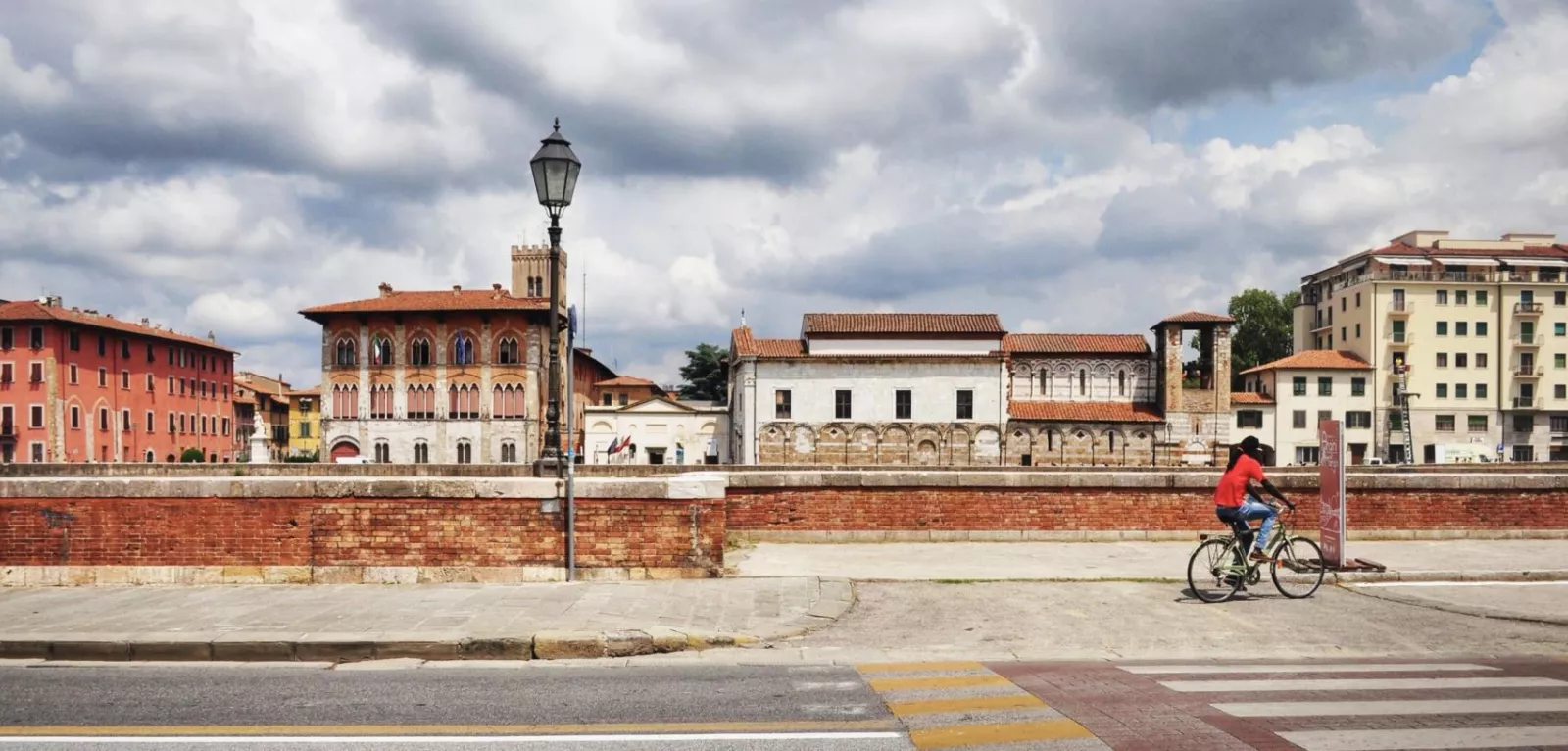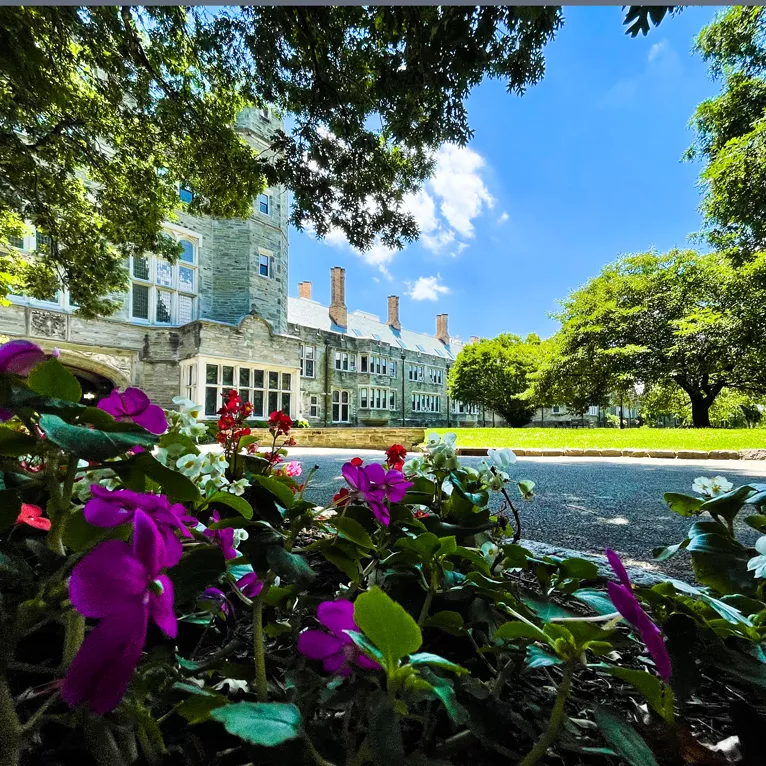
Transnational Italian
Il suono del Lungarno Photo credit: © Emma Ricci-De Lucca
In voting unanimously to embrace this new name in 2021-22, we are joining other programs in the humanities across the world who are seizing the current moment to make curricular changes for the explicit decolonization of our field(s). By de-centering peninsular Italian culture, questioning concepts of “standard Italian” and “Italian civilization”, and evading ethnocentric, national, and nationalistic rhetoric, we wish to manifest our commitment to an anti-racist, transcultural, and post-colonial approach to Italian Studies.
The Transnational Italian Studies Department at Bryn Mawr serves the Trico community and offers an interdisciplinary and a transnational course of study that explores the works of canonical Italian authors alongside traditionally marginalized voices, bringing together issues of gender and sexuality, language and class, race and ethnicity. Students may complete a major or minor in Transnational Italian Studies.
The aim of our major/minor is to explore the social, linguistic, literary, artistic, ethnic, and political communities that have identified themselves as Italian throughout history. In order to do so across disciplinary boundaries, the Department actively cooperates with numerous institutions, primarily by offering cross-listed and co-taught courses in the Bi-Co.
In particular, we participate in the Romance Languages major as well as with the departments and programs that inform the Bi-Co major in Comparative Literature. Many of our courses, taught in English and in Italian, count towards History of Art, Growth and Structure of Cities, Russian, Classics, International Studies, Health Studies, Africana Studies, Film Studies, and Gender and Sexuality Studies.
Students may choose to study Italian as:
- Major in Letters in Italian (track A)
- Major in Intercultural Italian Studies (track B)
- Minor in Italian Studies
- Major in Romance languages with Italian as first or second language
- Major in Comparative Literature with Italian as the primary or secondary language
- a double major
- a major or minor in International Studies
What to do with a major in Transnational Italian Studies?
Perhaps the best way to answer this question is to see what our alumnae have done over the years –
- Internships in Milano (SITE Program, one or two years).
- Graduate School (History, Literature, Linguistics, Romance Languages, Public Health, Library and Information, Social Work, International Education, and Landscape Architecture), Law School, Medical School, and Veterinary School.
- Teaching Italian as a second language in Elementary, Middle, and High School.
- Alumnae who decided not to continue with graduate school, have found employment in a broad range of fields, including Publishing/Translating, Acting, Journalism, Paralegal, Travel/Alternative Tourism, Activism, and Marketing/Cultural Advising.
Can I start an Italian major from scratch?
Yes, a beginner in Italian has the same chance of majoring in Italian with honors (3.7 GPA) as a non-beginner. In our average first-year class enrollments of 35-40 students and of 7-10 majors in Italian, one third of these will have previous knowledge of the language.
Extracurricular Activities and Fellowships
The classroom experience is enriched through events and activities organized by faculty, major representatives and students at all levels. Each semester, we gather for the Tavola Italiana (once a week) and the Italian Major and Minor Information Session (once a semester), as well as scholarly events and film screenings. To stay updated on our events, please follow us on Instagram (@italian_trico), on Facebook (Italiano a Bryn Mawr, Haverford & Swarthmore), and on our YouTube channel (BrynMawrCollegeItalian) or visit our Events page. To know more about past events, check-out the blog of the Italian Club (Italianist* di Bryn Mawr, archivio storico 2013-2022). The department also offers fellowship opportunities for students visit Risorse di settore.
Support Italian at Bryn Mawr

Contact Us
Transnational Italian Studies Department
Old Library 103
Bryn Mawr College
101 N. Merion Avenue
Bryn Mawr, PA 19010-2899
Phone: 610-526-5198
Fax: 610-526-7479
Roberta Ricci, Chair
Phone: 610-526-5048
rricci@brynmawr.edu
Katie Pidot, Academic Administrative Assistant
Phone: (610) 526-5198
kpidot@brynmawr.edu


